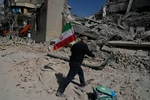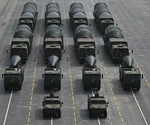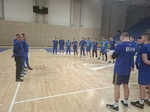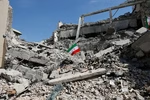Republika Srpska gives up on auxiliary police unit formation

Authorities of Bosnia’s Serb-dominated entity Republika Srpska (RS) called off the plan to form an auxiliary police unit, as they previously announced, and said the change they plan to introduce instead is renaming their support police unit into a gendarmery.
Oglas
Currently known as the RS Ministry of Interior’s Support Unit, the gendarmery will consist of active police officers, mostly young ones who obtained their education at the Police Academy, the ministry said.
“The ministry decided to reorganise its intervention forces for a faster and more efficient response to the security challenges that we are facing in the RS, including a large number of illegal migrants. In this way, we believe that the Interior Ministry can respond to security challenges which lie ahead of the police in the upcoming period, with professionally trained and specialised forces,” said the Interior Ministry.
According to the ministry, forming the auxiliary police unit takes longer and requires more resources, which is why the changes to the Law on Police and Internal Affairs stipulating the auxiliary unit formation will be withdrawn from the procedure.
Oglas
Earlier this year, the RS authorities announced they would amend a law and form an auxiliary police unity, which sparked reactions in the Federation, Bosnia’s Bosniak-Croat dominated entity, and a part of the international community.
The entity Government prepared the law and sent it to a parliamentary procedure.
“The only purpose of forming the auxiliary police unit is the better protection of the territory and citizens of the RS, especially because of the inability to deal with the migrant crisis,” Bosnian Serb leader Milorad Dodik, representing the RS in Bosnia’s state Presidency, said in response to the criticism.
While the US Embassy said it would demand further information on the purpose of the new unit, the European Union’s representative expected the law to be “improved” in the amendment phase.
Oglas
“The EU stands ready to offer its support,” the EU’s office in Sarajevo told N1.
The most recent response came from an international body overseeing the civilian aspect of the peace process in Bosnia, the Peace Implementation Council, which suggested to Bosnian authorities to provide their police units with adequate resources to deal with the challenges the country is currently facing.
After the 1992-95 war, Bosnia got divided into two semi-autonomous regions, Serb-dominated RS and FBiH which is shared by the Bosniaks and the Croats. Each entity has its own government, parliament and police. The police reform in 2008 supervised by the international community formed the state-level police forces but those in the two entities remained.
Kakvo je tvoje mišljenje o ovome?
Učestvuj u diskusiji ili pročitaj komentare
Oglas
Kakvo je tvoje mišljenje o ovome?
Učestvuj u diskusiji ili pročitaj komentare
Oglas





 Srbija
Srbija
 Hrvatska
Hrvatska
 Slovenija
Slovenija



























































